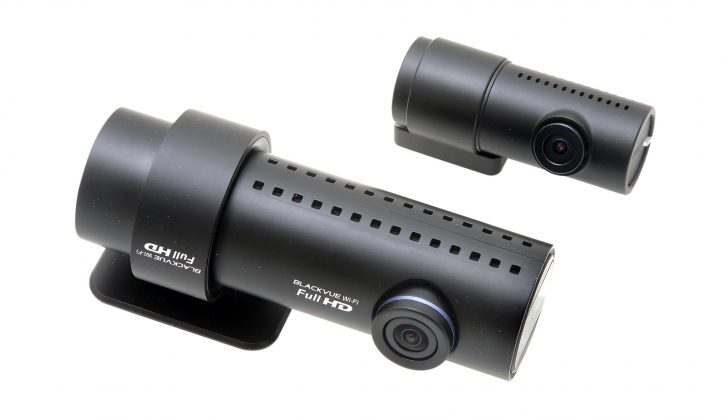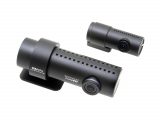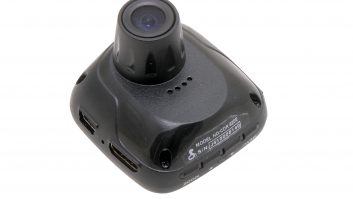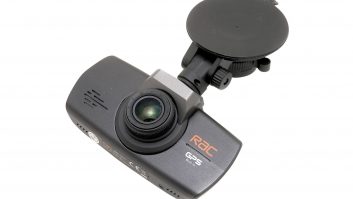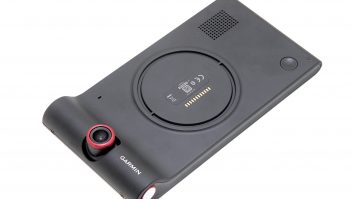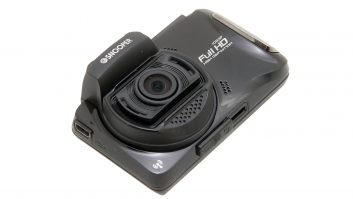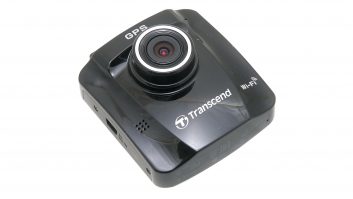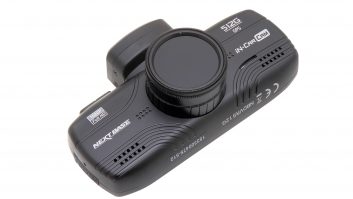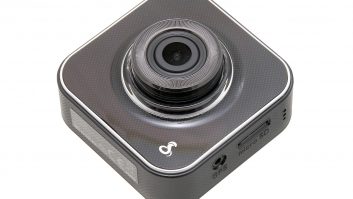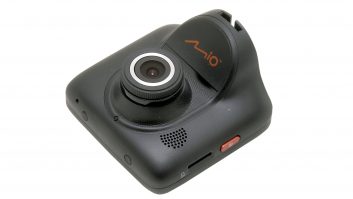Verdict
The Blackvue DR650GW-2CH records the rear view as well as the forward view superbly, but having no screen would be a major disadvantage for many of us. It means we’re forced to connect it up to a smartphone via Wi-Fi to see the footage, which is not always possible or convenient.
On the plus side, you could use the Blackvue DR650GW-2CH to record amazing road trip views. With this dashcam’s footage you can relive that tour-of-a-lifetime visit to Australia again and again. Or perhaps you want to save footage from your drive along Italy’s breathtaking Amalfi coast, or Ireland’s dramatic and rugged west coast road, the Wild Atlantic Way. And what if the sunset was behind you all the way? You can enjoy it later, thanks to that rear-view camera.
Pros
Rear-view camera as well as forward-view camera
Superb quality image
GPS data is recorded
G-Sensor detects and protects footage of any crash
16GB microSD card included
Cons
No screen built into it
No forward-collision alert
No lane-drift alert
Even if you’re not into gadgets, you’ll have noticed that other people seem to be using dashcams. As a result, social media now has even more hilarious clips of people attempting to park, worrying footage of bad driving, road rage and so on. But if you have no plans to make your own YouTube clips, why might you need a dashcam in your motorhome?
With cameras on the corner of so many urban streets, it’s easy to forget that Britain’s countryside is largely surveillance-free. While this is refreshing, if somebody accidentally crashes into your motorhome, it means there’s no CCTV footage – and there are probably no actual witnesses – to back up your insurance claim.
Without detailed proof of the rights and wrongs of an accident, you’re quite likely to end up with a ‘knock-for-knock’ deal between the insurance companies – which is bad news in terms of the hassle factor and is likely to hike up your premium next year. How unfair.
Of course it’s even worse if the other driver doesn’t stop, or if you’re injured.
Some insurance companies are now offering discounted insurance premiums to drivers who install dashcams in their vehicles, because it makes any claim so much easier and quicker to sort out.
So, if you’re shopping for dashcams, what’s on offer?
The best dashcams assist the driver in many ways. If you can afford it, buy a dashcam with GPS, because this enables it to overlay the images of any impact with the exact location, time and date.
There are plenty of other desirable features to look for when you’re shopping for dashcams. We’d want the ones that give you speed camera alerts and tell you if you’re driving too fast, drifting out of your lane (and possibly falling asleep at the wheel), and if the vehicle in front has braked suddenly.
The way in which dashcams work is that they film the road ahead as you drive, automatically. When the camera card is full, they simply overwrite it in a continuous loop. But, thanks to motion sensors in the device, if any impact is detected the dashcam will save the footage before, during and after the incident, and record all the relevant GPS and mapping data at the side of it. Some of them also have a ‘parking mode’ and a battery, so that if someone crashes into your ‘van while it’s parked, the device will start recording automatically.
Given the amazing camera quality in most dashcams, numberplate recognition is usually possible even at night. Hit-and-run motorists, beware! We’re convinced – dashcams are worth having on board, if you get the right one.
We’ve tested a wide selection of dashcams in Practical Motorhome, such as the entry-level Cobra CDR 820 and the feature-rich Cobra Drive HD CDR900, the Transcend DrivePro 220, Snooper DVR-4HD, the excellent Mio MiVue 538 Deluxe, the Next Base iN-Car Cam 521G and the combined dashcam and sat-nav package, the Garmin nuviCam LMT-D. You can read our other dashcam reviews here.
The Blackvue DR650GW-2CH costs £289.99 and records the rear view as well as forward view – but there’s a major problem. Sometimes termed as professional dashcams, models such as this don’t seem to offer a lot at first glance. There’s no screen at all, so if you want to view the coverage you’ll have to hook it up to a smartphone via Wi-Fi .
It’s also missing a plethora of features, such as forward-collision warnings, which most premium dashcams have.
The integral GPS simply monitors and records speed and positional data.
But, that said, visually, the output is superb. This model’s most interesting feature is a second camera for the rear window, complete with a length of coaxial cable physically connecting it to the front unit.
This model’s most interesting feature is a second camera for the rear window
Technical Specifications
| Dashcam with built-in | Wi-Fi and GPS data recorder |
| Image quality | Full HD 1080P + 720P HD @ 30fps |
| Tech spec | 2.4MP SONY CMOS Sensor |
| Tech spec | Increased Bitrate to 8.5kps (front) 3.2kps (rear) |
| Field of view | 360° rotation is possible |
| Field of view | 129° wide-angled lens |
| Three modes | Normal, event and parking |
| G-Sensor trigger level | Programmable |
| Front camera size | 11.85cm long x 3.6cm diameter |
| Rear camera size | 6.74cm long x 2.76cm diameter; 30g |
| BlackVue DR650GW | HD drive recorder |
| Camera connection cable | 5/6m |
| Windscreen mount | Quick release |
| Power | 12/24v power connector on extended lead |
| Included | MicroSD to USB key ring Adaptor |
| Included | Cable tidy kit |
| Controls | Wi-Fi on/off, voice recording on/off buttons |
| HD Coaxial cable | For data transfer |
| Viewing footage | Check the front and rear videos via the built in Wi-Fi |
| BlackVue Viewer for Windows PC and MAC | Video search, playback, MyWay Viewer, BlackVue preferences |
| Buy extra memory | Compatible with up to 64GB microSD camera cards |
